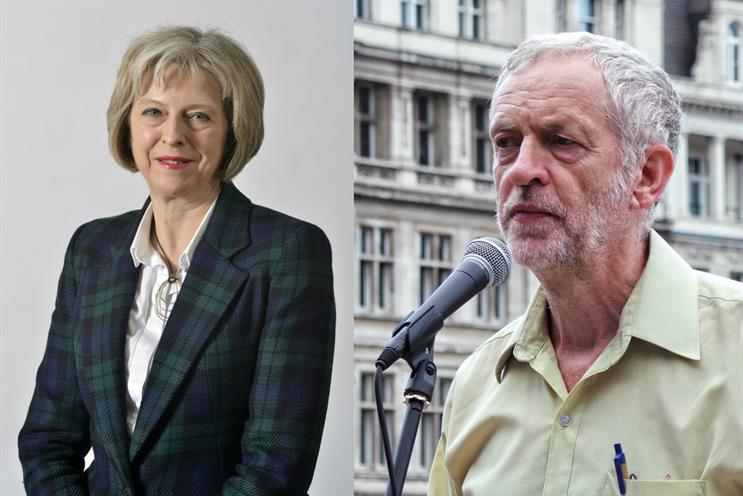
WPP chief executive Martin Sorrell said the announcement "adds further uncertainty for a month or so, but depending on the decisiveness of the result may make things ultimately less uncertain."
That decisiveness would be good news, IPA director general Paul Bainsfair said.
"While the announcement is unexpected, both the polls and the City - with the pound bouncing back after a slight dip against the euro and the dollar - seem confident of a clear-cut result," Bainsfair said. "In that sense, it seems therefore unlikely that this will dent marketing spend.
A stronger majority for the government would provide stability for the upcoming Brexit negotiations, he added.
While this was potentially good news, Ian Barber, director of communications at the Advertising Association, said, it made it all the more crucial for the industry to state its case.
"Our big message to government is that our sector is a case study in what our country needs post-Brexit," he said. "We need the government focused on some of the tricky negotiations based around access to talent.
"There’s nothing in our conversations that suggest they don’t understand how important it is to get this right for business. It’s in no one’s interest to come up with an immigration policy that undermines a global success story."
Barber added that in the apparently unlikely result of a government led by Labour's Jeremy Corbyn, the industry would anticipate working with "a very different team with a very different outlook," but that he had seen nothing yet to worry him about Labour’s attitude.
The Conservatives are currently around 16 points ahead of Labour in the polls, pointing to a huge majority for the prime minister.
Our polling average update:
— Britain Elects (@britainelects)
CON: 42.3%
LAB: 26.4%
UKIP: 10.9%
LDEM: 9.9%
GRN: 4.0%
Most recent survey: 17 Apr (ICM)
Chris Combemale, chief executive of the Direct Marketing Association, said that as it handles Brexit, the government must not threaten the digital economy.
"The UK is a world leader in digital and data-driven business, driving both the job market and economic growth," he said.
"But to see this success continue we will need a government that is willing to commit to the long-term development of skills and infrastructure, putting the UK’s digital economy at the heart of its business strategy."
The outcome aside, changes to the media landscape in the last two years will make this election one to watch, said Kevin Chesters, chief strategy officer at Ogilvy & Mather.
"It'll be a good early test of recent BBC/Google/Facebook initiatives to combat fake news," he said. "It's the first post-filter bubble UK general election so I think we'll all be a little more aware of searching outside our comfort zones."
He added: "If I were the parties I'd be focusing on the first law of communication - one simple, remarkable, repeatable message. What and where is the equivalent of ‘Yes we can’ or ‘Make America great again’?
The victory for the Lib Dems in the Richmond Park by-election last December led to speculation that the party could win back a significant number of seats in areas with a high Remain vote.
Chesters added that they could be being "the only party with one clear message - are you one of the 48% who didn't want a hard Brexit? We're the only opposing party."




.jpg)
.jpeg)
